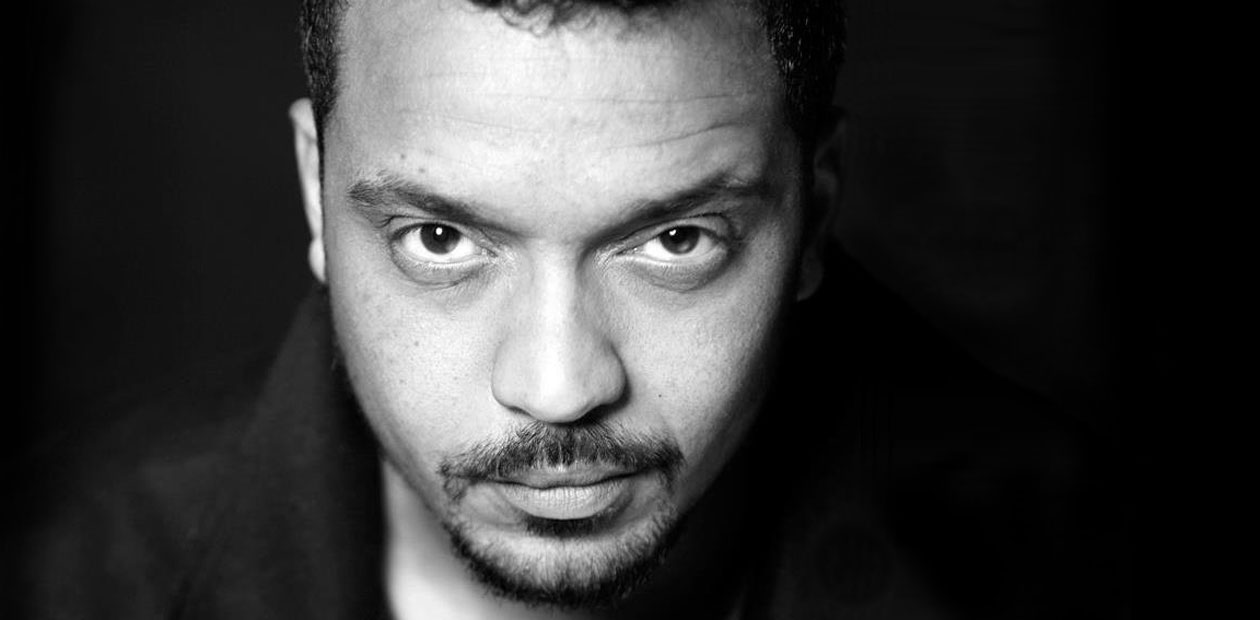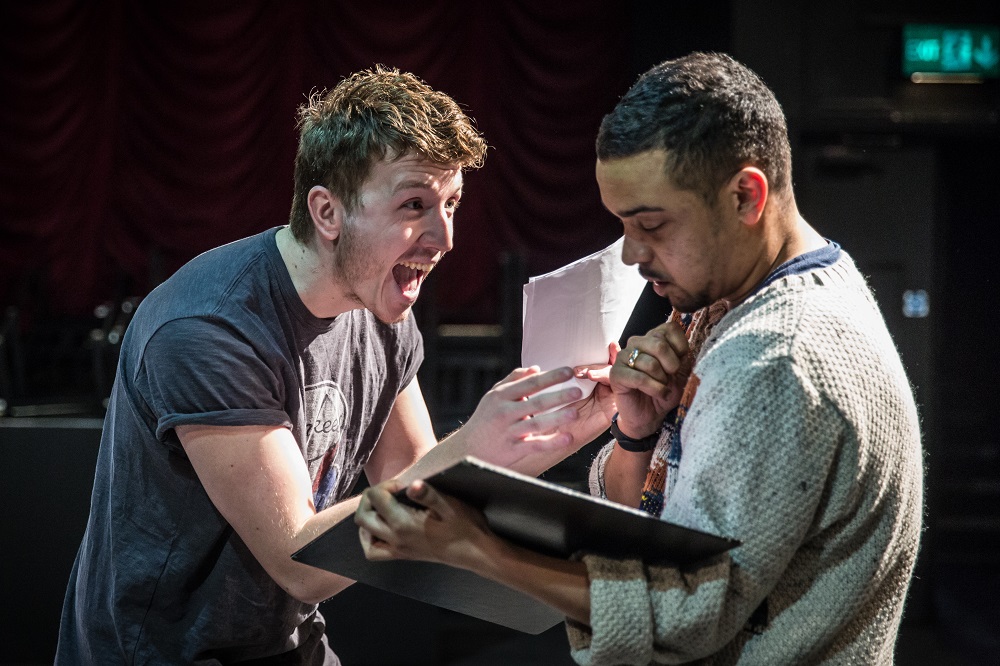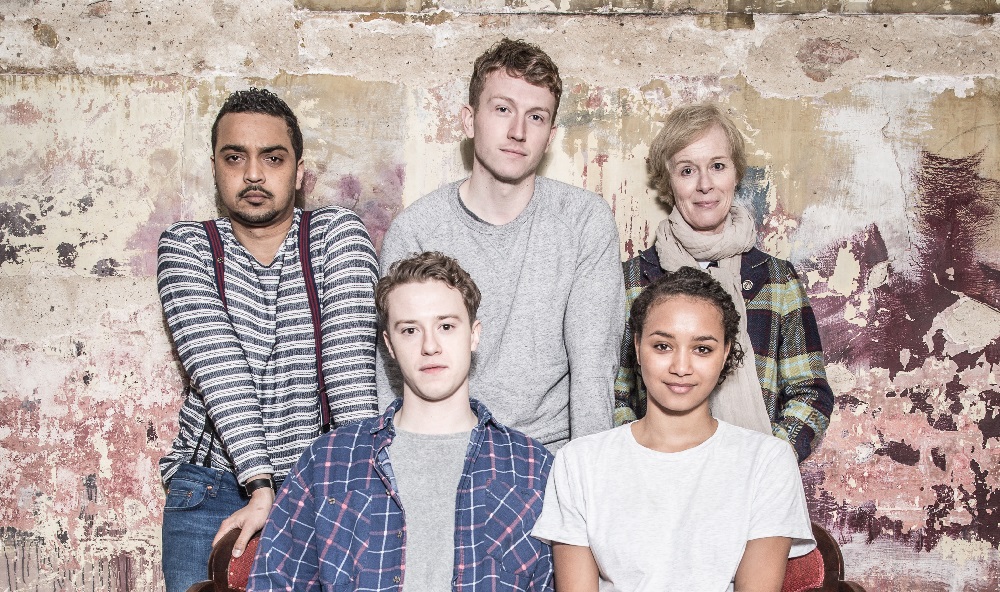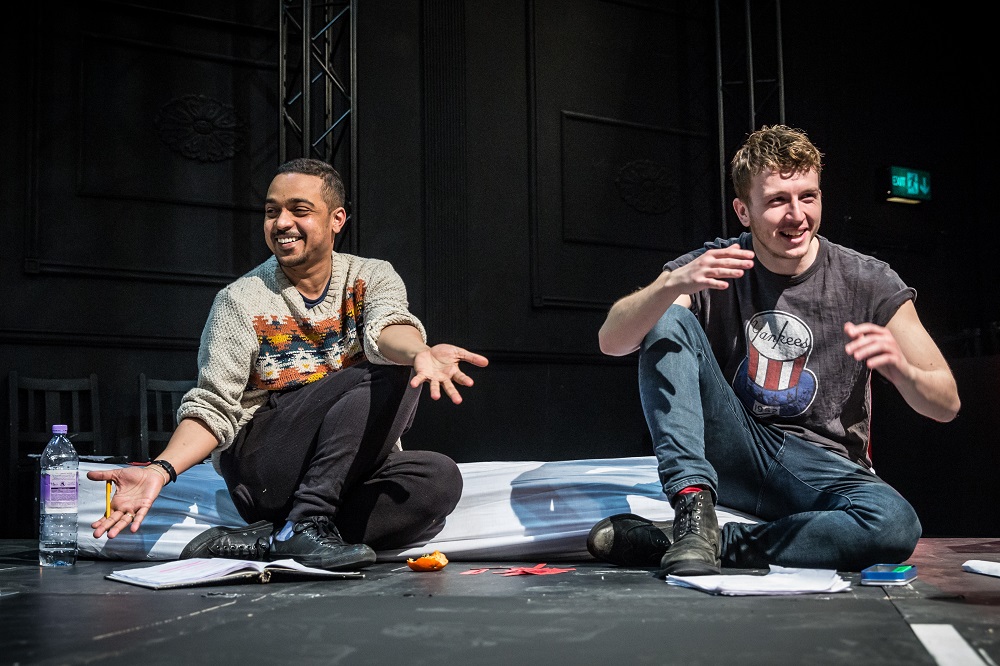Interview | Actor Danny Lee Wynter talks ‘Deathwatch’ revival and lack of media diversity

Danny Lee Wynter is all about diversity. Unhappy with the way that the real world is represented in mainstream media, the actor, writer, and campaigner has decided to do something about it.
He is currently performing in Jean Genet’s Deathwatch, a play following three prisoners sharing a cell: Maurice has a deep attachment to Green-Eyes, as does Lefranc, but secretly. First performed in 1947 and described as “an explosive exploration of the inversion of moral order”, the revivial is directed by Geraldine Alexander and opens at The Play Room at London’s Coronet Theatre this week (April 14) – the first time the show has been performed in London in just shy of thirty years.
Last year, Wynter founded the charity Act for Change in response to an ITV trailer titled ‘Where Drama Lives’, which featured not a single black, Asian, mixed ethnicity or disabled person, and a significant lack of women, all of whom were silent, one of which was crying.
Wynter has an impressive resumé: He has shone in lead roles in both TV and the stage, and has already worked alongside some of the best, including Sir Michael Gambon and Dame Maggie Smith. He has also written for a number of publications, providing a first-hand perspective of being a young, gay, mixed race actor working in the industry.
Danny Lee Wynter was kind enough to answer a few questions for us here at Attitude, and reveals how his new role made him engage with the modern justice system, and whether he thinks there will ever be truly fair representation on screen and on stage…
So what can you tell us about Deathwatch for those who are unaware of the play?
Deathwatch is the first play by the iconic gay writer and political activist, Jean Genet. It’s set in a prison (Genet himself was a petty criminal), and it tells the story of three men racked with egotistic and homosexual tensions, preying upon each other’s nerves and driving one another to explosions of verbal and physical violence. We’re performing it at the Print Room at the Coronet Theatre in Notting Hill, and the brilliant Geraldine Alexander is directing.
The show hasn’t been performed in London since 1987. Does this feel like a good time for it to return?
Genet’s work rarely receives the kind of affectionate platform that many of his peers have, and I think that’s because the plays deal with themes that scare people. An evil resides within them that many find fearful. He is a trailblazer for the underworld. I didn’t know this particular play, at first, and having now studied it, I find it hugely relevant. We visited a prison, and it quickly became apparent that prisoners lives and the daily tribulations they face are often not spoken of. Here in the UK we say that we believe in rehabilitation, yet the fact is many of the prisoners still leave with no job or home to go to, their relationships with their families tend to breakdown, and all too quickly they find themselves trapped within the system of crime. Our current government allocates something like thirty two pence a day per prisoner. It’s forever 1980 inside.
Inside many heterosexual men sleep with other men, and then it’s simply never spoken of again. Does it make them gay? No. Like all of us, they’re vulnerable people in need of physical and emotional affection. Many of the men in the prison we visited have strong faiths and beliefs which, of course, don’t accept homosexuality, and I find that contradiction both compelling and fascinating. These are just a handful of the themes Genet was exploring in his work back in the forties.

What is your favourite thing about your character, Lefranc?
That amid a litany of deeply unattractive, repugnant qualities, LeFranc genuinely yearns for what he describes in the play as ‘a family of brothers.’ For any of us who’ve been outsiders, we know what it means to seek out our own tribe. No one is an island, as much as there’d like to be. And there’s a real nobility in acknowledging that. That said, for the most part, LeFranc is a deeply hurt soul who uses cruelty as a weapon.
Have you always wanted to act? What compels you about the profession?
I guess my love for it began as a toddler watching the ugly sisters in panto at the Kenneth Moore Theatre, Ilford back in the early ‘80s. Unfortunately, I’ve never wanted to do anything else. I say unfortunately because it can be an unrelenting business, and no matter what level you’re at rejection is very much a part of our lot as artists. I have friends who can open films at the box-office, and yet rejection is still as prominent a feature in their lives as it is for the friends I know working in pub theatre.
I’ve never not wanted to do exactly what I’m doing right now, and yet, of course, I reserve the right to moan and I threaten to change profession every month and bitch to my closest friends! Because until you’re in it you’ll never really understand the ridiculousness of it all. Ultimately though, I love my job. And there’s nothing else I can do, otherwise I’d be doing it.
What can you tell us about Act For Change, which you founded last year?
Act For Change was founded in early 2014 in response to an ITV ‘Where Drama Lives’ trailer which featured not a single BAME (Black, Asian, Mixed Ethnicity) or disabled actor, and very few women. Myself and a group of friends in the arts wanted to voice our concern that the life you see when you walk down the street isn’t always reflected in the drama we receive. We hosted a series of high-profile events at the Young Vic & National Theatre drawing attention to the issue of inclusivity, and we are now a registered charity who campaign for greater diversity in the live and recorded arts. This includes better representation of sexuality, race, gender, age, disability and class.
What is being done directly to deal with the issue of greater ethnic diversity in media today?
Since Act For Change’s inception Arts Council England (ACE) has introduced that they will cut funding organisation’s who continue to fail to not be diverse in their remit – so there is now certain criteria particular establishments must meet in order to be awarded the money they receive. Channel 4 recently published their Diversity Charter. The Diamond Initiative is due to launch in April this year, giving us statistical analysis of diversity in the industry. This is a major step following years of diligent effort and significant financial investment.

What about gay representation in theatres and on screen?
In the last couple of years we’ve seen some excellent stories told on stage and screen from the perspective of gay characters. I’m thinking specifically of John Donnelly’s The Pass, Stephen Beresford’s Pride. Many of the gate-keepers (producers, directors & casting directors) I meet in the business are often gay men. In fact, most of them! The people on the boards, who have the say to green-light something. So actually, the power is already in their hands when it comes to gay representation. But the types of stories they choose to tell about our experience as gay people often falls in to the category of ‘victim,’ because for so long that’s how society has come to observe us. And it sells, the Hollywood narrative of ‘the tragic gay’ experience. And it’s the predominant one.
Interestingly, all of these gay male gatekeepers I’m talking about are white, and rarely, if ever, do they tell stories about the gay black British experience. White gay men are the first to say they feel victimised or disenfranchised when they are maligned or left out, but actually gay black men and women when push comes to shove have to really search in order to find their stories told in the mainstream. The one place I feel gets the balance right is British soap operas. Their gay characters tend to just exist in the same way our family, friends and loved ones do, where being gay isn’t always the driving force of the storyline, and that can be welcomingly refreshing.
Have you noticed any kind of improvement so far, since you started up the charity? What is already being done?
To begin with, friends and colleagues are being called in to audition for organisations which until now excluded them, and on a personal level that’s a big triumph. Of course there’s a long way to go, and even though Act For Change is still very much in its infancy we’re gearing ourselves up so that we’re in the position to offer a host of facilities, including mentoring, workshops and financial aid to those from diverse backgrounds hoping to start out in the profession, as well as continuing to help our supporters who contact us for advice each day.
But recently there’s been Lucian Msamati, who played Iago in the Royal Shakespeare Company production of Othello; John Boyega in Star Wars: The Force Awakens; Rebecca Root in Boy Meets Girl, the BBC’s first sitcom about a transgender woman. And recently I have been sitting on the audition panel at my old drama school, LAMDA. I’ve been particularly excited at the prospect of bringing diverse talent into the school. A lot has been achieved in a relatively short time. But we mustn’t become complacent. There’s miles to go.

What should be being done in order to reach a greater representation in the media? Is it counterproductive to count statistics in an attempt to meet quotas?
First of all, I think you need to ask yourself ‘Has the live and recorded arts managed to sort out better representation and sustain in long term without quotas?’. With all the good-will in the world people won’t suddenly keep giving opportunities to non-white, able-bodied people, just as they won’t reduce their speed on the motorway unless signs are put up. There’s inherently a fear – usually amongst white, able-bodied, affluent people – that quotas will somehow impede the quality of the work produced. But I say when you draw upon the experiences from all of us, and not just the chosen few, when you shine a light on other ways of living and being that are different to your own, the work will only be richer.
Nobody said make a programme like Downton Abbey and have within it a black, transgender paraplegic (although personally I think that would be smashing)! They’re saying lets get diversity behind the camera on a programme like that, let’s open things out. There is a default setting of white, able-bodied middle class that is the version of England everybody who is not English envisages. But those of us who are English know the truth. I support Lenny Henry’s fight for quotas. There currently isn’t an even playing field – it would be great to get to a point where company’s were simply seen as odd for not being inclusive. Right now there are still people who don’t even realise that they’re continually projecting stories into the world that only reflect their comfortable existence.
Can you envision a time where representation in media will be fair and equal?
At the moment, no. That sounds bleak, doesn’t it? For that to happen I think society has to change beyond all recognition. But that doesn’t mean we should not use whatever power, privilege or position we’ve been given to try to help make things fairer for those forgotten voices coming up behind us.
How can somebody get involved with the Act for Change Project?
You can join our network on Facebook (The Act For Change Project) or on Twitter @actforchangehq. You can subscribe to our Newsletter by visiting act-for-change.com, and there’s also details there of how you can donate towards the campaigns future.
‘Deathwatch’ is at The Print Room at London’s Coronet Theatre between Thursday April 14 – Saturday May 7. For more information visit theprintroom.org.
For all the best deals on shows, visit tickets.attitude.co.uk.
Words: Georgios Hadjimichael
More stories:
Russell Tovey, Andrew Garfield and Demise Gough for Angels in America revival
Interview | Londoner producers give Oscar Wilde’s Dorian Gray a sordid Gothic spin
